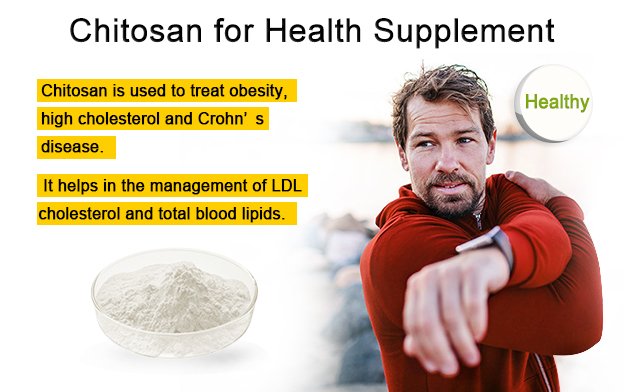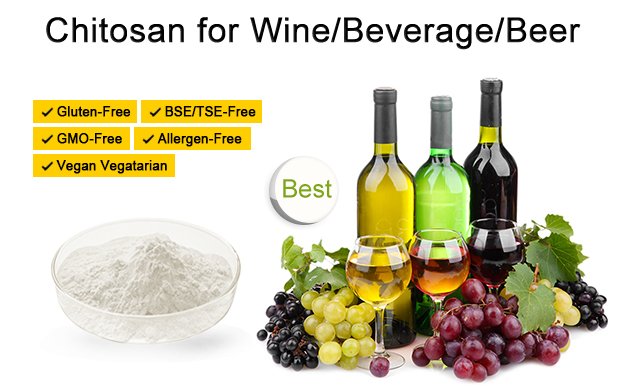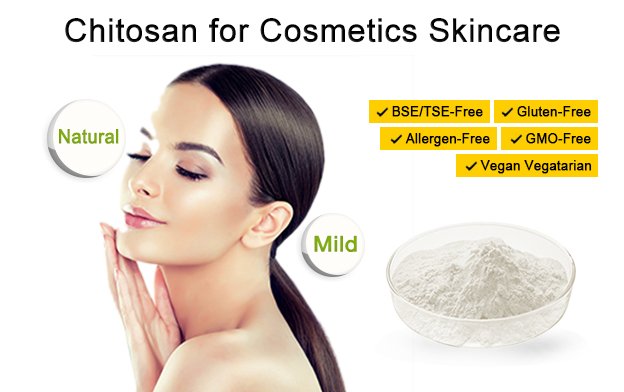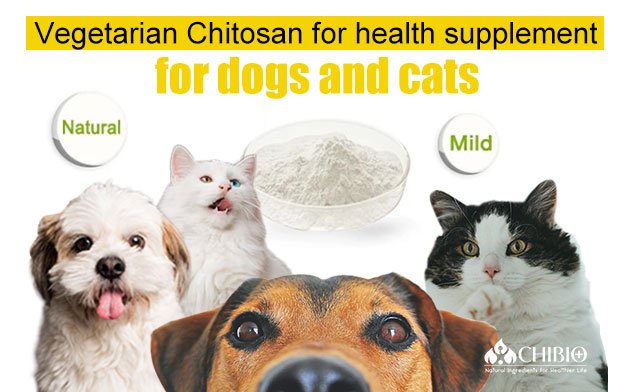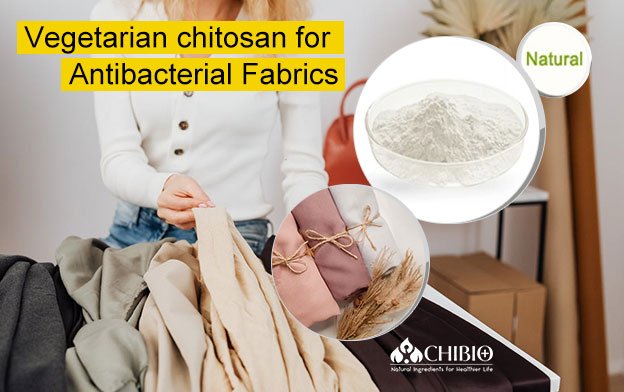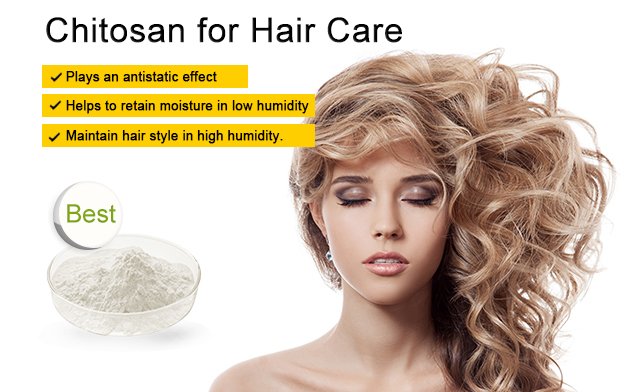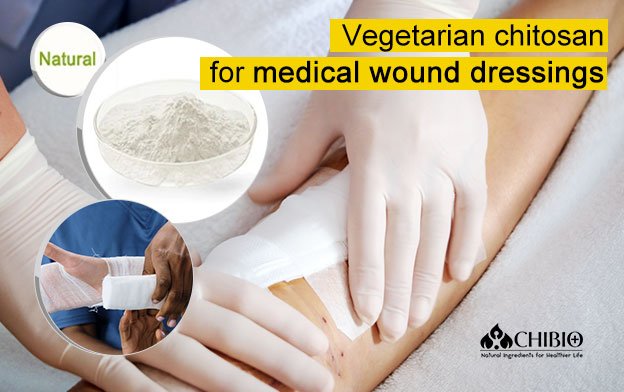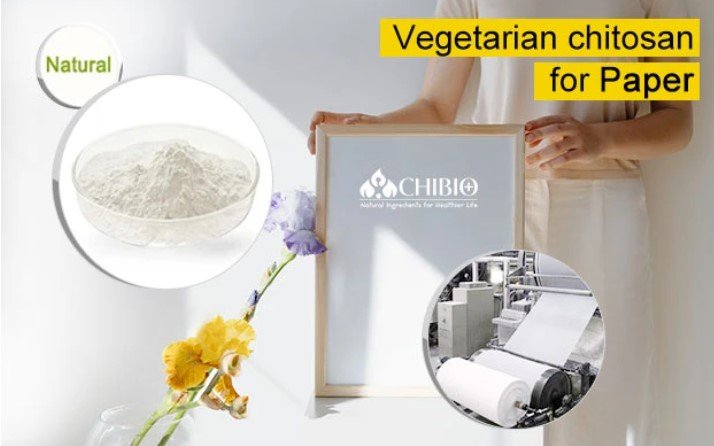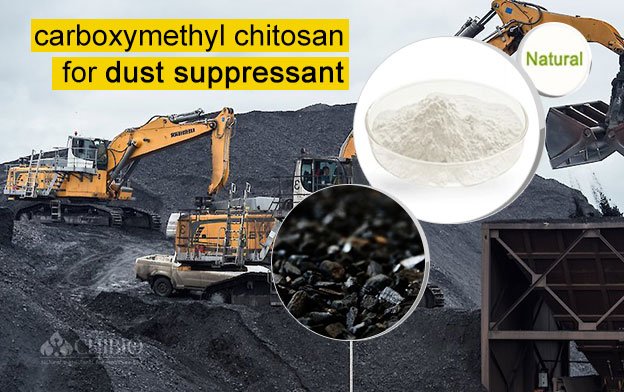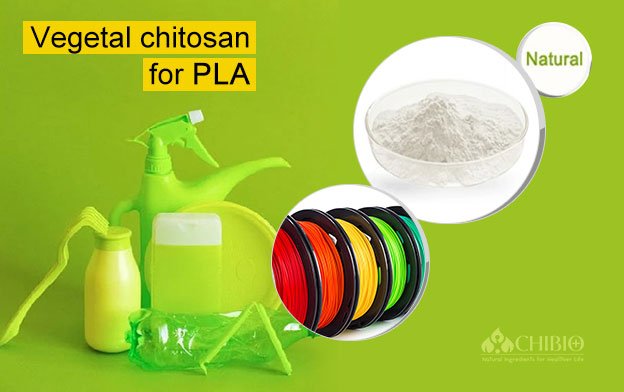Vegetal Chitosan Applications
The unique characteristics of vegetal chitosan, such as biocompatibility, non-toxicity, Non-allergen, and biodegradability, antitumor, antimicrobial, and antioxidant activities make it suitable for a wide range of applications.
The applications listed below are for your reference, and more applications are continually being developed.
Vegetal Chitosan
Effective for Over 23 Applications with Positive Feedback
Food Fruit Vegetable Preservatives, Flocculant
Vegetal chitosan is a versatile and sustainable biopolymer offering considerable benefits in the food industry. Its properties, including biodegradability, antimicrobial activity, and ability to form films, make it a valuable tool in food preservation, processing, enhancement of food quality, food coatings and edible films, food processing aids, food packaging materials and so on. As the demand for environmentally friendly and safe food processing aids grows, vegetal chitosan stands out as a promising solution.
Dietary Supplement
Vegetal chitosan, derived from fungal sources, presents a multitude of benefits and functions when included in dietary or food supplements.
Primarily known for its weight management properties, vegetal chitosan has the ability to bind dietary fats in the digestive system, which can help in reducing their absorption and potentially aiding in weight control.
It’s also recognized for its role in cholesterol management, as it can bind with cholesterol in the gastrointestinal tract, thus reducing its absorption and potentially lowering overall cholesterol levels.
Another significant benefit is its contribution to gut health; acting as a dietary fiber, it can enhance gut flora balance and overall digestive health.
Wine/Beverage/
Beer-Making Fining Agent
In wine applications, vegetal chitosan can be used as a fining agent. Fining agents are substances that are added to wine to remove unwanted impurities, such as sediment, haze, or off-flavors, and improve the clarity and stability of the wine.
Vegetal chitosan can elimination of Brettanomyces bruxellensis cells and remove suspended particles, including yeast cells, bacteria, and tannins, that can cause haze or sediment in the wine.
It can improve the clarity and stability of wine, as well as reduce the levels of unwanted compounds and off-flavors.
Vegetal chitosan can also act as a natural preservative, which can extend the shelf life of wine and reduce the need for synthetic additives.
Cosmetics Skincare
Vegetal chitosan is known for its biocompatibility, biodegradability, and non-toxicity, making it a favorable ingredient in cosmetics with key Benefits including:
- Moisturization & Skin Barrier Enhancement
- Anti-Aging
- Antimicrobial and Healing Qualities
- Enhancing Product Stability and Efficacy
Can be used in various cosmetic products like:
- Acne Treatments and Antimicrobial
- Hair Care & Makeup
- Stabilizers and Preservatives
- Fragrance and essential oils
Pharmaceuticals
Vegetal chitosan stands out in the pharmaceutical industry for its biocompatibility, biodegradability, and non-animal origin, making it a safe and ethically viable component in various medical applications.
Its antimicrobial properties are essential for reducing infection risks, particularly in wound care, while its ability to enhance drug absorption significantly improves therapeutic outcomes, especially in oral and transdermal delivery systems.
Functionally, vegetal chitosan is pivotal in controlled drug delivery, thanks to its gel-forming capabilities, optimizing sustained release of medications. Its mucoadhesive properties enhance the effectiveness of drugs on mucosal surfaces, and its role in tissue engineering and wound management is marked by its supportive structure and healing properties.
This versatility makes vegetal chitosan a crucial ingredient in advancing pharmaceutical technologies and therapies.
Agriculture
Vegetal chitosan, sourced from non-animal origins like fungi, is emerging as a sustainable alternative in agricultural practices. Its benefits in agriculture are multifaceted, including stimulating plant growth, enhancing yield, boosting disease resistance, and acting as a natural deterrent to pests.
Vegetal chitosan improves seed germination rates, increases plant stress tolerance, and contributes to soil health improvement. Its applications span from being a biopesticide and biostimulant to a soil amendment and seed treatment. The effectiveness of vegetal chitosan can vary depending on factors like its molecular structure, crop type, and environmental conditions. Being environmentally friendly and sustainable, it offers a viable option for those seeking eco-conscious agricultural solutions.
Pet Supplement
Vegetal chitosan, sourced from fungi, offers diverse health benefits for pets, including enhancing digestive and immune system health, aiding in weight management, and contributing to joint health.
It’s available in various forms like powders, capsules, enriched pet foods, topical applications, and oral hygiene products, catering to different health needs and ease of administration.
Textiles
Vegetal chitosan stands out for its remarkable versatility, being adaptable in various forms such as fibers, powders, and solutions, each catering to specific textile needs. Its integration into fabrics enhances properties like antimicrobial effectiveness, moisture management, and UV protection, all while maintaining a gentle footprint on the environment.
As the textile sector gravitates towards sustainable and ethically sourced materials, vegetal chitosan sets a benchmark for future innovations. Whether it’s in medical textiles requiring hypoallergenic properties, performance wear demanding moisture-wicking capabilities, or eco-conscious fashion seeking sustainable materials, vegetal chitosan offers a tailored solution.
Bio-leather
vegetal chitosan elevates bio-leather by improving durability, resistance to wear and tear, and antimicrobial properties, thereby extending the lifespan and freshness of the leather goods.
With its exceptional biodegradability, vegetal chitosan not only supports eco-friendly manufacturing practices but also significantly reduces the reliance on harmful chemicals typically associated with leather production.
Its versatility allows it to be applied in various forms—from powders and solutions to coatings and nanoparticles—each tailored to enhance specific characteristics of the bio-leather such as moisture resistance, structural integrity, and aesthetic finish.
Fat Binder for Weight-loss Management
Vegetal chitosan, derived from sources like mushrooms and Aspergillus niger, offers a multifaceted approach to weight loss. Its primary function is fat binding, where it interacts with dietary fats in the stomach to form large complexes that the body cannot absorb, effectively reducing the total caloric intake from fats.
This mechanism not only aids in direct weight loss but also helps in managing blood cholesterol levels, contributing to overall cardiovascular health.
Additionally, vegetal chitosan may enhance feelings of fullness and slow down digestion, which can lead to a decrease in overall calorie consumption by suppressing appetite.
Hair Care
Vegetal chitosan is valued in hair care for its ability to bind moisture, reduce frizz, and enhance shine.
Vegetal chitosan and hair are complementary because they carry opposite electrical charges – Chitosan positive and hair negative . A Clear solution that contains chitosan forms a clear, elastic film on hair, increasing its softness and mechanical strength. The material can also form a gel when added to mixtures of alcohol and water.
Chitosan acts as an antistatic thereby orotectine hair from wavine and bleaching agents. It helps to retain moisture in low humidity and to maintain hair’s style in high humidity. The material can be used in shampoos , rinses, permanent wave agents, hair colourants, styling lotions, hair sprays and hair tonics.
Dental & Oral Care
Vegetal chitosan, derived from sources like oyster mushrooms and Aspergillus niger, has shown significant promise in enhancing dental and oral care products due to its unique biological properties.
This biopolymer is particularly valued for its antimicrobial capabilities, which help inhibit the growth of harmful bacteria, thereby reducing plaque formation, gingivitis, and periodontal diseases.
Furthermore, vegetal chitosan is employed in a variety of dental care products such as toothpaste, mouthwash, dental gels, and varnishes due to its bioadhesive properties, which extend the retention and effectiveness of therapeutic agents in the oral cavity.
Wound Care
Vegetal chitosan, derived from sources like oyster mushrooms and Aspergillus niger, has emerged as a highly effective material for wound care applications due to its biocompatibility, biodegradability, and intrinsic antimicrobial properties.
Its ability to form films, gels, foams, fibers, sponges, and particles makes it extremely versatile in addressing different types of wounds.
Chitosan facilitates rapid hemostasis, accelerates tissue regeneration by promoting collagen synthesis and granulation tissue formation, and helps manage wound exudates through its superior moisture-absorbing capabilities.
Bio-packaging
Vegetal chitosan sourced from oyster mushrooms and Aspergillus niger is increasingly recognized as a valuable material for bio-packaging due to its sustainable origin and excellent functional properties.
Its inherent biodegradability and non-toxic nature make it an excellent alternative to synthetic plastics, particularly in the food packaging industry.
In the application of bio-packaging, vegetal chitosan can be processed into various forms such as films, coatings, and composites.
Films made from chitosan extracted from oyster mushrooms and Aspergillus niger exhibit good mechanical strength and barrier properties against oxygen and moisture, essential for maintaining the quality and freshness of packaged food.
Paper Industry
Vegetal chitosan, sourced from non-animal origins such as fungi and mushrooms, is revolutionizing the paper industry by offering an eco-friendly alternative to traditional chemicals.
As a natural biopolymer, vegetal chitosan is highly valued for its impressive array of properties which include enhanced paper strength, biodegradability, and inherent antimicrobial characteristics.
Its use in paper products not only improves physical attributes like tensile strength and water resistance but also imparts environmental benefits by promoting the production of biodegradable and recyclable paper materials.
Dust Suppressant
Vegetal chitosan stands at the forefront of eco-friendly dust control solutions, offering a remarkable blend of efficiency and environmental stewardship.
Its biodegradability ensures that it does not contribute to environmental degradation, making it an ideal choice for a wide range of applications, from agricultural fields to construction sites and unpaved roads.
Incorporating vegetal chitosan into dust suppressant strategies not only curtails the nuisance of dust but also supports moisture retention in the soil, fostering better conditions for plant growth and soil stability.
PLA (Polylactic Acid)
When integrated into PLA, vegetal chitosan not only improves the environmental profile of the composite by enhancing its biodegradability but also adds functional advantages like antimicrobial activity which is crucial for applications ranging from food packaging to medical implants.
As a renewable resource, vegetal chitosan supports the shift towards sustainable materials by reducing reliance on petroleum-based plastics and minimizing waste.
Moreover, its addition to PLA helps improve the mechanical and barrier properties of the final product, making it suitable for more demanding applications that require enhanced strength, durability, and resistance to microbial growth.
Water Treatment
With its higher degree of deacetylation compared to traditional crustacean-based chitosan, vegetal chitosan offers flocculation and coagulation, superior efficacy in binding and removing a wide range of contaminants, including heavy metals, oils, and phosphates.
Furthermore, vegetal chitosan’s biodegradability and non-animal origin make it an ideal choice for sectors looking to meet stringent environmental regulations and appeal to ethically-conscious consumers.
As industries and municipalities increasingly prioritize green solutions, vegetal chitosan stands out as an efficient, environmentally responsible option for modern water purification needs.
Animal Feed
Vegetal chitosan, derived from mushrooms and Aspergillus niger, stands as a cornerstone in animal nutrition, offering a comprehensive array of benefits.
Serving as a natural enhancer of gut health, it fosters the proliferation of beneficial gut bacteria while inhibiting the growth of harmful pathogens, thereby facilitating optimal nutrient absorption and fortifying the animal’s immune defenses.
Its versatility is underscored by its proficiency in toxin binding, effectively neutralizing toxins and heavy metals in the digestive tract, thereby safeguarding animal health.
Personal Care
Vegetal chitosan, derived from sources like mushrooms and Aspergillus niger, is increasingly valued in the personal care industry for its versatile and beneficial properties.
This biopolymer is used across a wide range of products, from skin care and hair care to oral and feminine hygiene.
In skin care, chitosan concentrations typically range from 0.1% to 2%, where it enhances moisture retention and provides anti-aging benefits by forming a film that tightens and smoothes the skin.
It’s also praised for its antimicrobial properties, which make it suitable for formulations targeting acne-prone skin or products like deodorants, where it helps reduce body odor by preventing bacterial growth.
Disinfection
Vegetal chitosan, derived from sources like mushrooms and Aspergillus niger, serves as an effective and eco-friendly disinfectant in various applications, leveraging its inherent antimicrobial properties.
Its biodegradable nature makes it particularly appealing in environments where reducing chemical residues is crucial, such as in food processing and healthcare settings.
In the food industry, chitosan is used as a coating for fruits and vegetables, not only to inhibit the growth of pathogens but also to extend shelf life by forming a semi-permeable barrier that controls moisture and gas exchange.
Air Filtration
Vegetal chitosan, derived from sustainable sources like mushrooms and Aspergillus niger, presents a revolutionary approach to air filtration technology.
Its unique molecular structure not only captures fine particulates effectively but also imparts antimicrobial properties to filtration media, ensuring cleaner, healthier air in various environments.
The biodegradable nature of vegetal chitosan aligns with eco-friendly initiatives, making it an ideal choice for enhancing air quality without contributing to environmental burden.
Whether integrated into residential HVAC systems, commercial air purifiers, or healthcare facilities, vegetal chitosan offers superior filtration performance, effectively removing pollutants, allergens, and pathogens from the air.
3D Printing
Vegetal chitosan, derived from sources such as mushrooms and Aspergillus niger, is increasingly recognized as a pivotal material in the realm of 3D printing, particularly within biomedical applications.
This naturally occurring biopolymer is lauded for its exceptional biocompatibility, biodegradability, and antimicrobial properties, making it an ideal candidate for creating complex tissue scaffolds, drug delivery systems, and customized prosthetics.
The ability of vegetal chitosan to form hydrogels and be processed into powders or filaments enhances its utility in various 3D printing technologies, allowing for precise customization to meet specific medical needs.
Get in Touch with Us

- Get Free Sample
- Get Step Quote
- 24/7 Service
- Customized Specification
- Confidentiality Agreement


